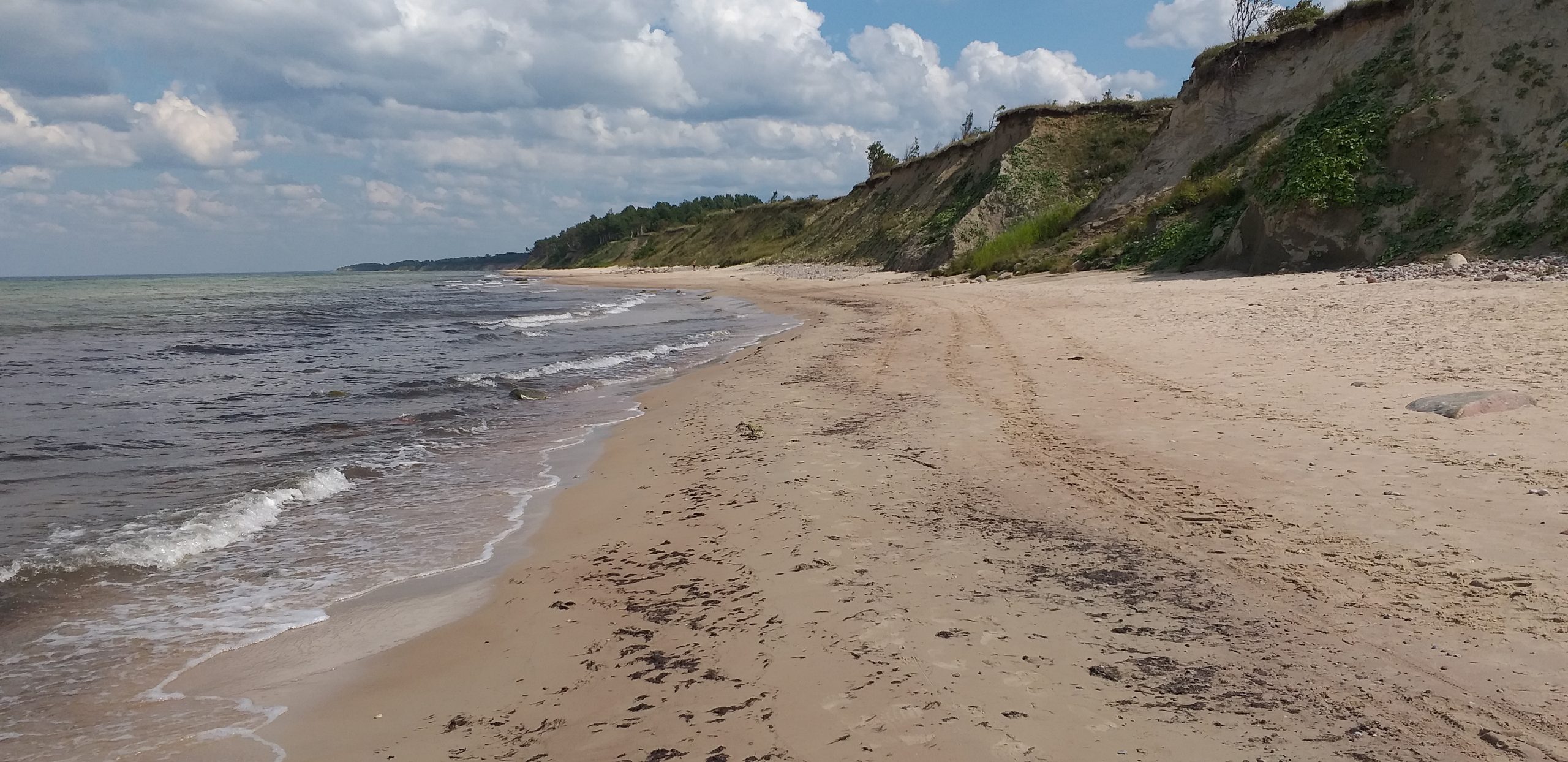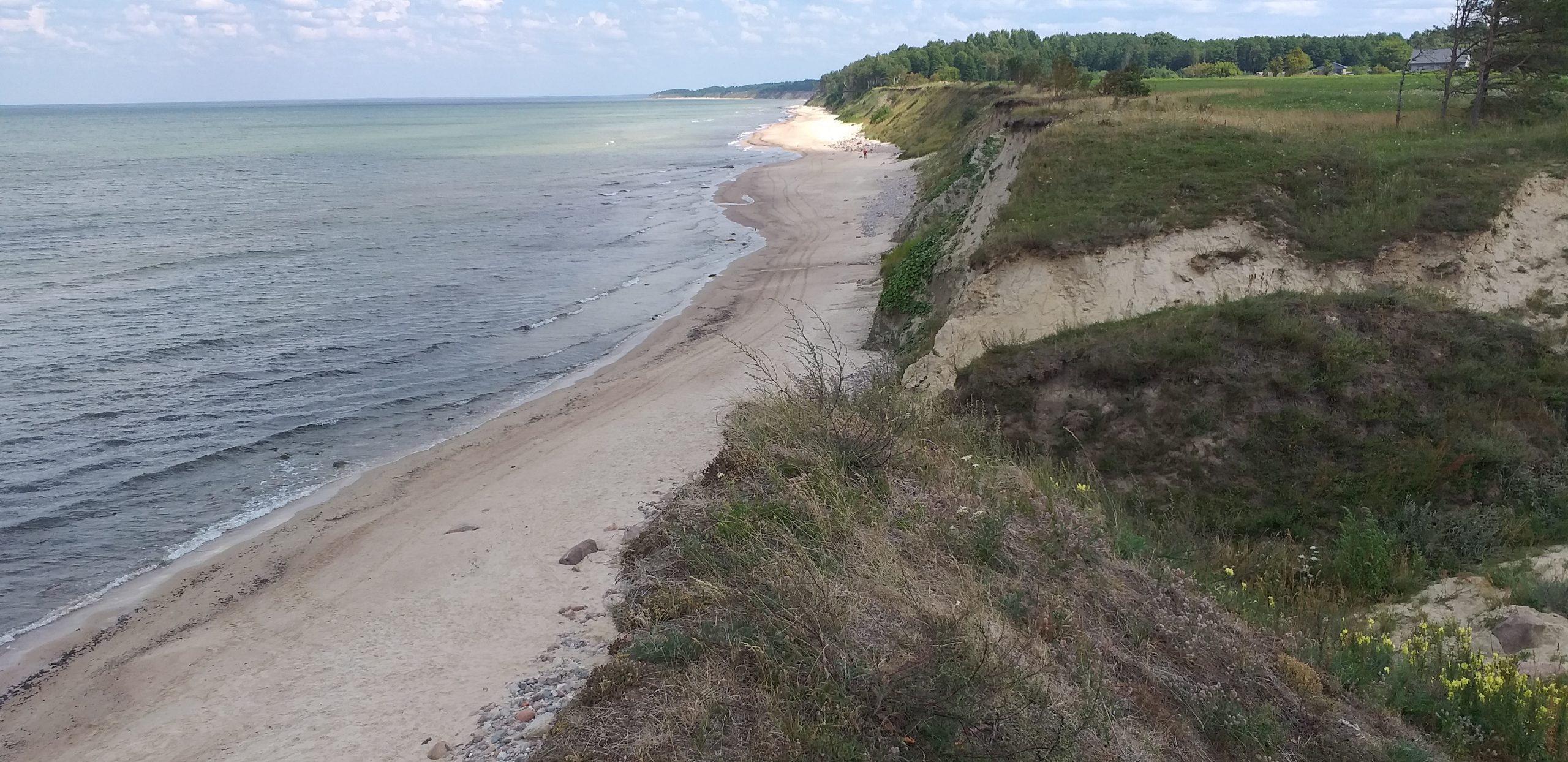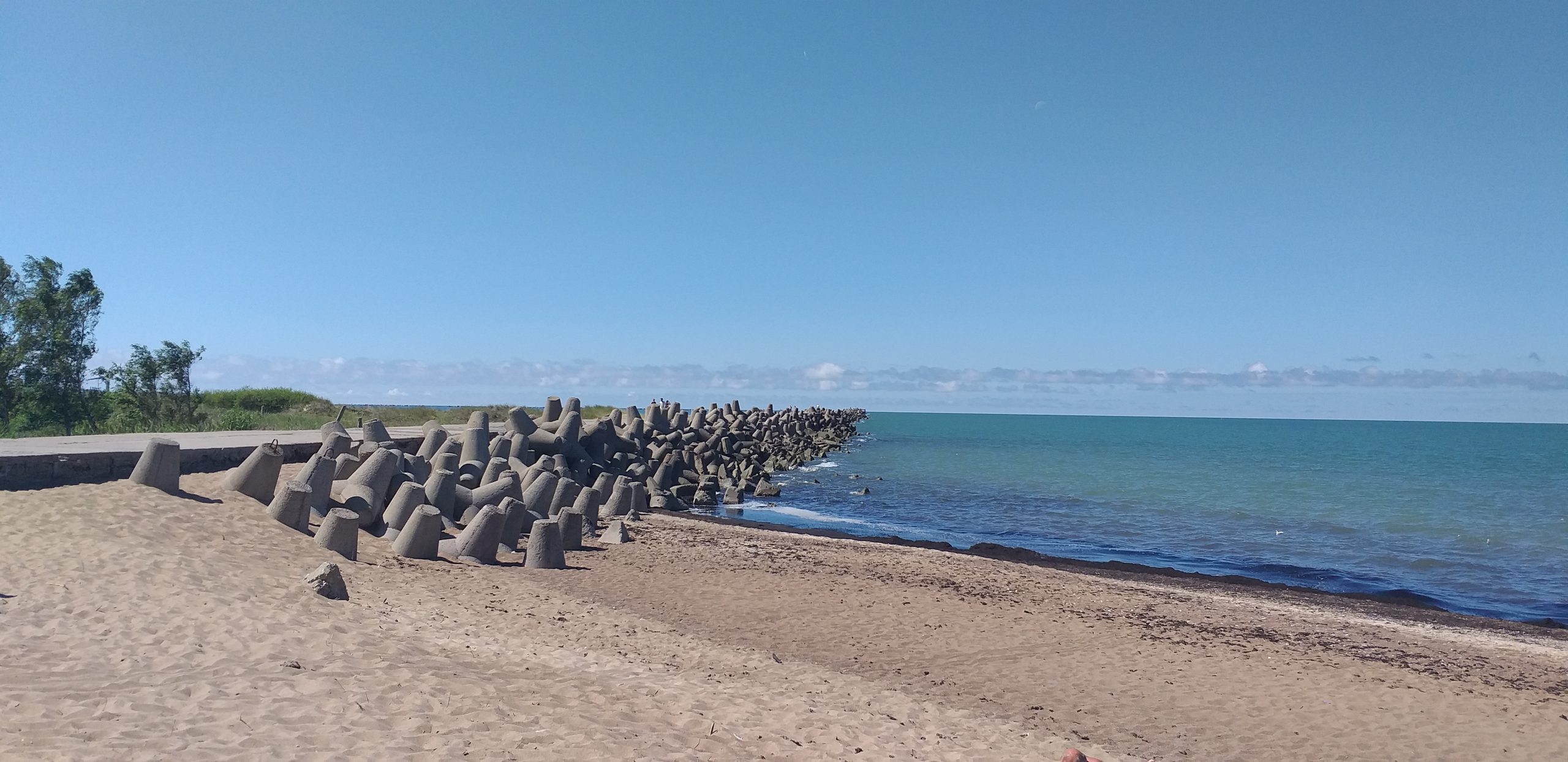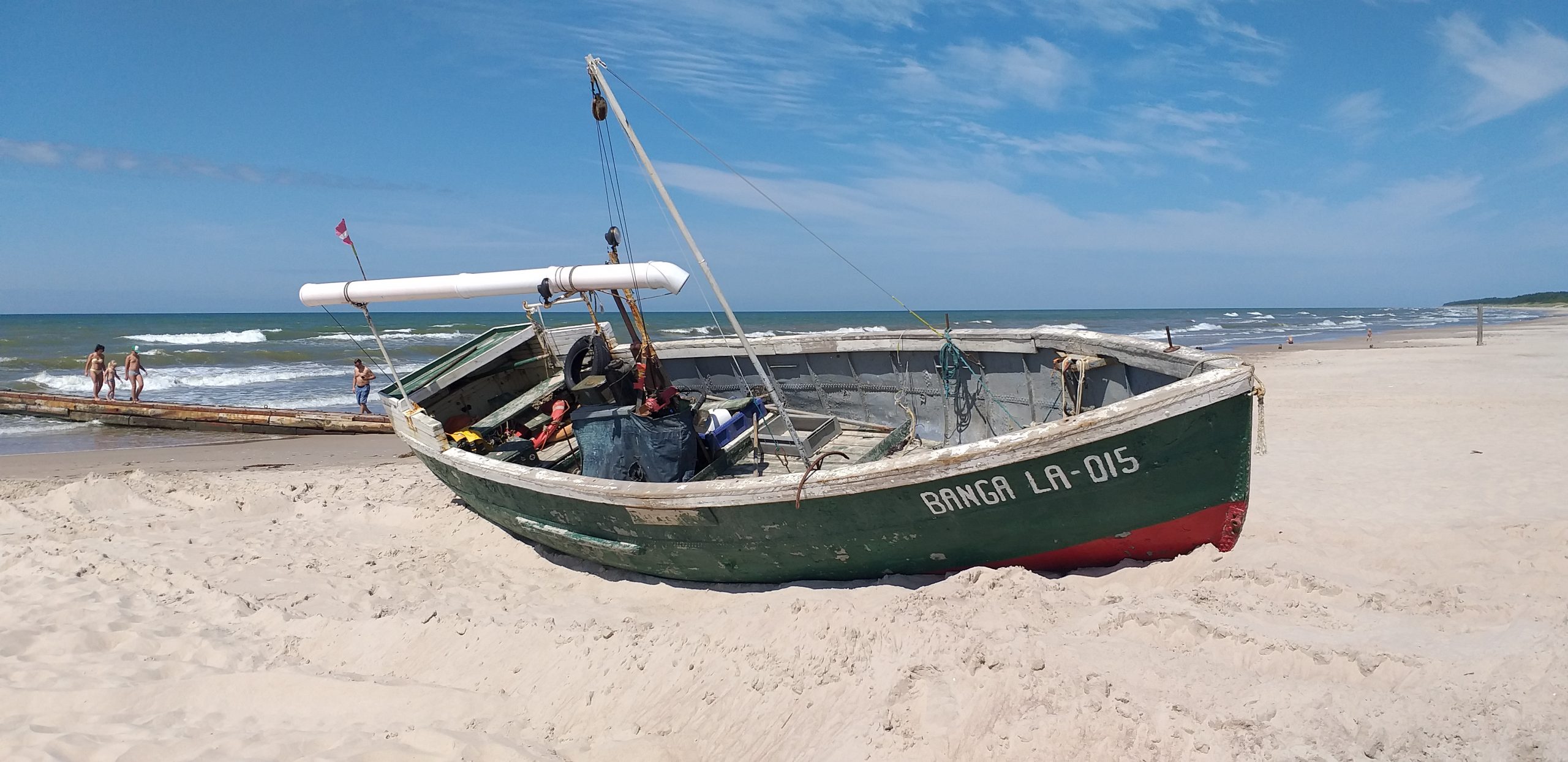Trade-offs and balanced use of land-sea resources (Latvian Case)
Trade-offs and balanced use of land-sea resources (Latvian Case)
Lead: Baltic Environmental Forum Latvia
The demonstration case at the Southwestern Kurzeme coast of Latvia aims to address these land-sea interaction challenges by i) assessing the development potentials and trade-offs in the coastal areas, and ii) proposing spatial planning solutions, which would balance the national interest for development of the off-shore renewable energy with local community interests for maintaining of the coastal landscape and tourism development.
Click here to see the results in the map explorer
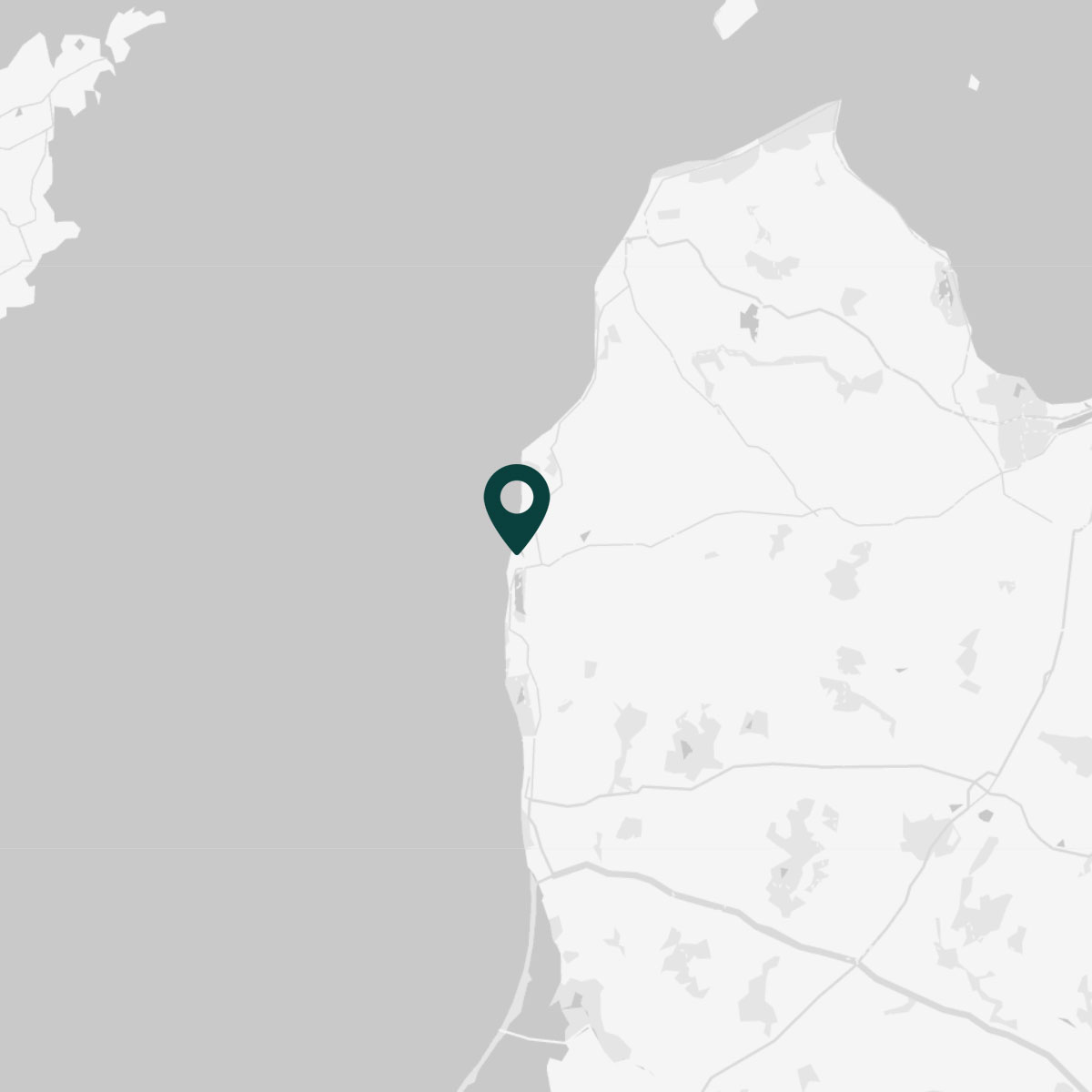
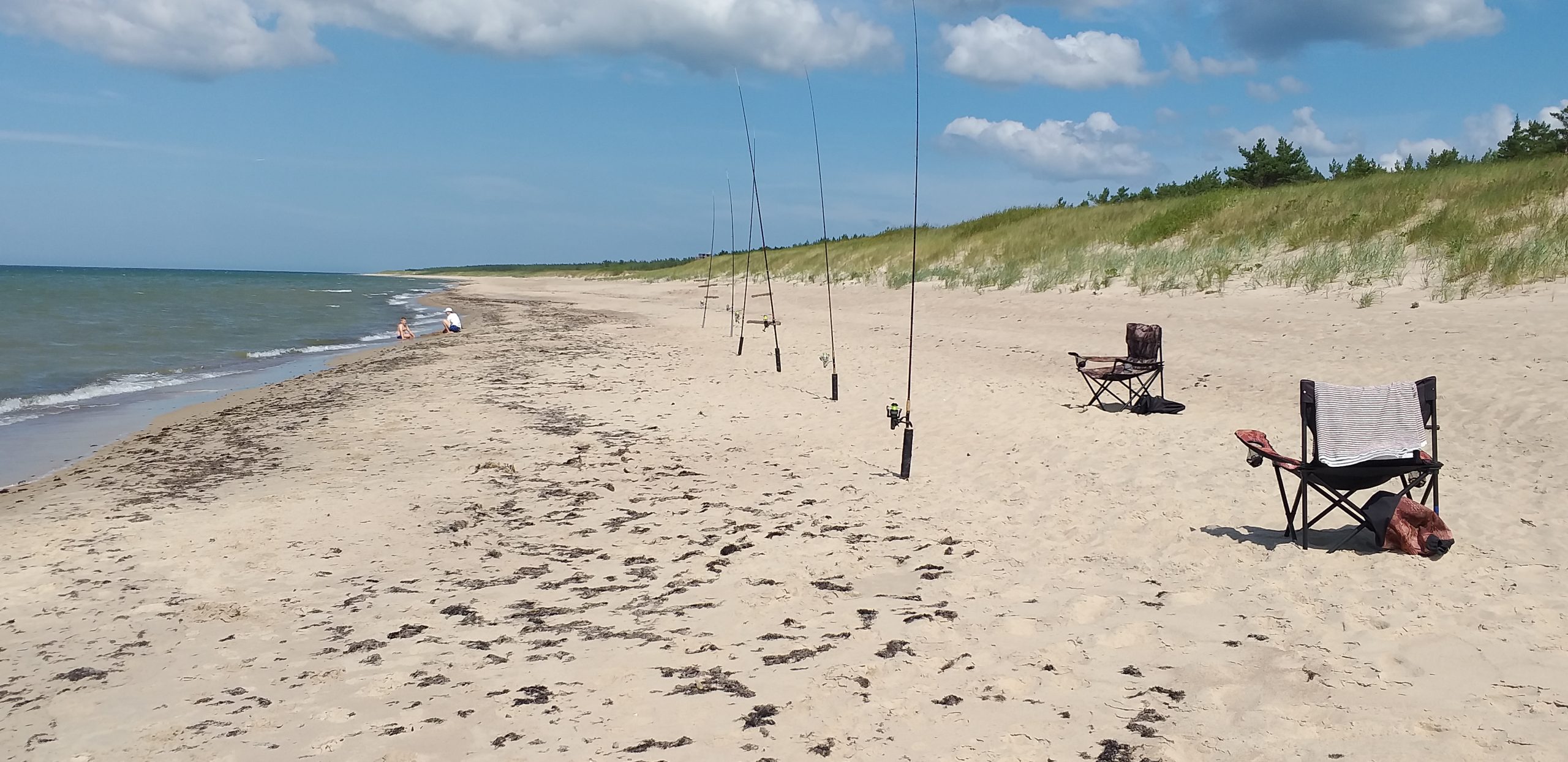
Fishing at Southwestern Kurzeme coast (source: BEF Latvia 2020)
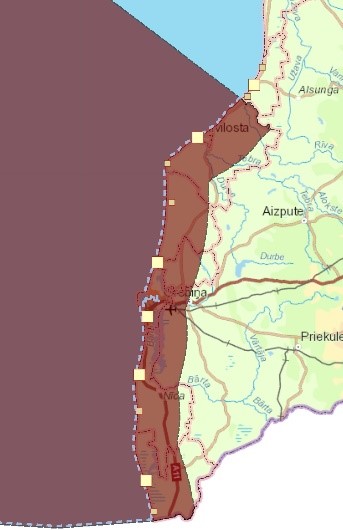
Enhancing of the Blue Growth initiatives and sustainable use of marine resources (e.g. offshore renewable energy development) strongly depends on MSP solutions. MSP is a national level long term strategic planning document for the sea, whereas management of the coastal resources and tourism development are mostly addressed by the municipality strategic and spatial planning documents. The difference in spatial scale (national vs. local), temporal perspective (long term vs. short term) as well as conflicting policy interests or priorities (e.g. offshore vs. tourism) are the major challenges for achieving the coherence between land-based and maritime spatial planning and balanced use of the coastal resources. The demonstration case at the Southwestern Kurzeme coast of Latvia aims to address these land-sea interaction challenges by
- assessingthe development potentials and trade-offs in the coastal areas, and
- proposingspatial planning solutions, which would balance the national interest for development of the off-shore renewable energy with local community interests for maintaining of the coastal landscape and tourism development.
Implementation of the demonstration case starts with stocktaking of the available data on marine and land-based development resources, existing and planned land-/sea-use activities and limitations. This will also include mapping and assessment of the coastal ecosystems, landscape and ecosystem services essential for local communities (e.g. recreational opportunities, aesthetic, educational, cultural heritage and symbolic value etc.). Furthermore, stakeholder mapping and analysis will be performed to obtain the actual contacts of representatives from all concerned stakeholder groups as well as to get an overview on stakeholder interests in development of the coastal areas.
The next stage involves scenario building (identification of the possible development directions and trends, spatial visualisation of the scenarios) with particular focus on off-shore energy and tourism development. Trade-off analysis of the proposed scenarios will be performed, assessing social, economic and environmental impacts as well as impacts on ecosystem service supply.
Results of this process will be used to formulate visions and strategic objectives as well as spatial solutions for development and balances use of land-sea resources in the demonstration case area.
All the process (stocktaking, scenario building, trade-off analysis and elaborating of the solutions) are based on participatory approach, including stakeholder interviews, local and regional workshops and focus group discussions, thus ensuring that local knowledge and interests are equally represented along with national development interests and expert opinions.
Experience gained through the work on the demonstration case will be used to formulate conclusions on how to address land-sea interactions in spatial planning and recommendations for Multi-level Governance Agenda.
Expected results:
A synthesis report on Strategic Solutions for Balanced Use of Land-Sea Resources in the Southwestern Kurzeme coast, Latvia
incl. proposals on most suitable locations for offshore wind parks, pre-conditions and opportunities for new specific tourism cluster development as well as solutions for maintenance of landscape and tourism infrastructure and
proposals for recommendations for the Multi-level Governance Agenda on BG and Spatial Planning for BSR
Keywords:
spatial planning, coastal landscape, local communities, tourism, offshore wind farms
Leading partner:
Baltic Environmental Forum Latvia Contacts:
Anda Ruskule ([email protected])
Kristīna Veidemane ([email protected])
Dace Strigune ([email protected])
Events:
9.10.2019. Meeting local stakeholders – Landscape as a resource for coastal development
25.09.2020. Meeting local stakeholders - Balancing use of land-sea resources in the southwestern Kurzeme coast
Summer at Southwestern Kurzeme coast (source: BEF Latvia 2020)
